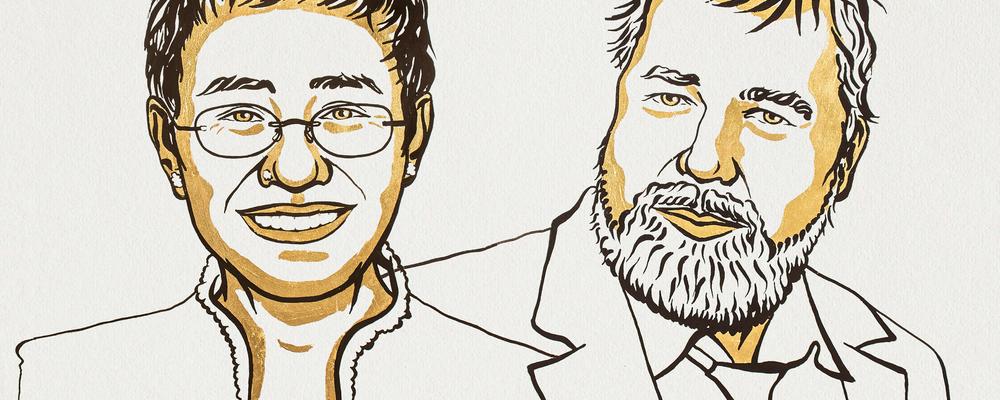At the Department of Journalism, Media and Communication (JMG), which trains prospective journalists, the news of this year's Peace Prize was both gratifying and long-awaited.
After many years of speculation about a Peace Prize to mark the importance of freedom of the press for peace, the announcement came that journalists Maria Ressa and Dimitrij Muratov are being rewarded for their efforts to protect freedom of expression, which is a prerequisite for democracy and lasting peace. They receive the award for their courageous struggle for freedom of expression in their home countries of the Philippines and Russia, but at the same time, they represent all journalists who stand up for freedom of expression.
“It is a very good choice”, states UNESCO professor Ulla Carlsson. “Maria Ressa and Dimitrij Muratov are actively participating internationally and have highlighted the problems we see in the Philippines and Russia, but also in many other countries in a large part of the world today”.
Threats are increasing
According to the Press Freedom Index that Reporters Without Borders publishes every year, today it is estimated that just under 10 percent of the world’s population has access to free media, and just over 40 percent is estimated to live in countries where censorship prevails or where the use of media is tightly controlled. The remaining approximately 50 percent are in between.
“In recent years, the threats to freedom of the press and the security of journalists have increased. Journalists are particularly vulnerable in war and conflict zones, which hinders reliable reporting. Female journalists are often exposed to sexual harassment and violence”, says Ulla Carlsson. “So, at a time when freedom of the press is being curtailed in several countries – when disinformation, conspiracy theories and actions against journalists, both physical and verbal attacks, have increased – it is necessary to strengthen press freedom in the world”.
Equipping tomorrow’s journalists
JMG’s head of department, Monica Löfgren Nilsson, who herself researches hatred and threats against journalists, also emphasizes press freedom as central to democracy and peace:
“The choice of Maria Ressa and Dimitrij Muratov is very good. Journalists like them and press freedom organizations are needed more than ever. Journalism, journalists and democracy are exposed to more and more serious threats in large parts of the world, and even in Sweden, journalists are threatened with silence”.
Tomorrow’s journalists must be equipped to meet these rising threats, and this is also a challenge during education.
“We address this in different ways, but now Reporters Without Borders is coming to JMG to hold a lecture and workshop with students both in the journalism program and in the international master’s program in investigative journalism (MIJ)”, says director of studies Ulrika Tengby Holm. “The purpose is to give students the opportunity to reflect on issues related to democracy, freedom of expression and reality for journalists, activists or dissidents in a context with shrinking or already limited democratic space”.
Text: Cajsa Malmström
Read more about the recipients and about the Nobel Peace Prize here: https://www.nobelpeaceprize.org/
